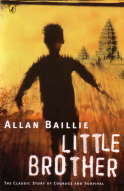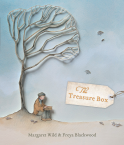Publisher's synopsis
‘Imagine the entire population of Melbourne abandoning their homes and taking to the road in flight from the city…’ This was how the then war correspondent George Johnston described the Sino-Japanese uprising in 1944. From personal experience came his novel, The Far Road, a powerful story on the war in China.
Amidst a landscape of corpses, two foreign correspondents, the American Bruce Conover and the Australian David Meredith, set out on an assignment into the interior of drought-stricken China. There they find the population in a state of panic – not from the invading Japanese, but from the local officials.
Through Johnston’s self-critical and sensitive protagonist, David Meredith, ‘hero’ of My Brother Jack, Clean Straw For Nothing and A Cartload of Clay, George Johnston exposes the essential self-interest, not only of the role of the war correspondent, but of journalists in general.

George Johnston was born in Melbourne in 1912, the son of working-class parents. At sixteen his career as a journalist was launched with the publication of several articles in the Melbourne Argus. By the time the Second World War broke out, Johnston was an established journalist. He worked as a war correspondent for Time magazine and became Australia’s first official war correspondent.
Towards the end of the war he met Charmian Clift who was also an accomplished writer. They married and in 1961, with their children, they left Australia to settle on the Greek island of Hydra.
However, in 1958 George was diagnosed with tuberculosis, the disease that led to his premature death. Eventually, in 1964 the family returned to Australia and here George wrote the first novel of his trilogy. My Brother Jack was followed by Clean Straw For Nothing, both of which won the Miles Franklin Award. The last few months before his death, in 1970, were concentrated in an effort to complete the third novel of the trilogy, A Cartload of Clay. It was the strength of Johnston’s honesty about humanity and relationships that earned him his place in Australia’s literary canon.







